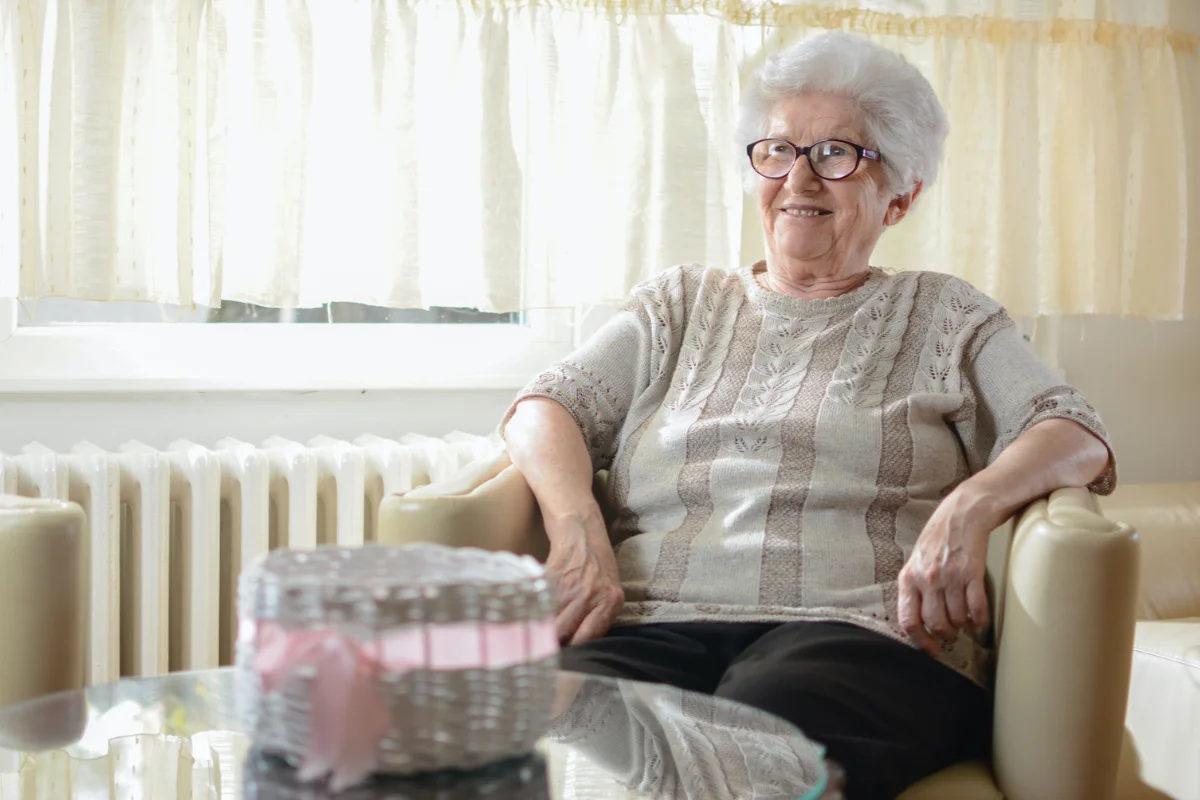The Advantages of Choosing Boutique Memory Care for Aging Parents
The Advantages of Choosing Boutique Memory Care for Aging Parents
Blog Article
All Concerning Memory Care Services: Why Small Memory Treatment Houses Are a Terrific Choice
Memory treatment solutions play an essential duty in supporting individuals with Alzheimer's and mental deterioration. Small memory care homes stand apart for their customized approach and intimate setup. With lower staff-to-resident proportions, these homes cultivate stronger connections and tailored treatment. Locals take advantage of enhanced social communications and a risk-free environment. As family members check out choices, comprehending the distinct benefits of little memory treatment homes ends up being vital. What variables should be considered when choosing the appropriate home?
Comprehending Memory Care Services
While several might recognize with basic senior care alternatives, understanding memory care solutions is essential for households dealing with the challenges of cognitive decline. Memory treatment specifically accommodates individuals with conditions such as Alzheimer's condition and other types of mental deterioration. These services supply an organized environment that concentrates on boosting the quality of life for citizens through specialized treatment and support.Memory treatment facilities are created to assure safety and safety and security, usually including protected environments to prevent straying. Educated personnel are readily available around the clock to assist with everyday tasks, drug administration, and personal treatment. Furthermore, memory care programs usually include cognitive stimulation tasks, customized to involve homeowners and advertise psychological well-being. Families can gain from comprehending these solutions, as they make it possible for informed decisions regarding their loved ones' treatment, making sure that their certain demands and choices are resolved in a helpful and caring manner.
The Advantages of Little Memory Care Homes
Little memory care homes provide distinct advantages that can greatly enhance the quality of life for citizens with cognitive disabilities. One considerable benefit is the intimate environment, which enables for individualized interactions among staff and homeowners. This smaller sized setup fosters meaningful connections, reducing feelings of isolation and anxiety frequently experienced by individuals with memory issues.Additionally, the reduced staff-to-resident proportion in tiny memory care homes allows caregivers to provide more attentive guidance and assistance. This method not only boosts safety and security but additionally promotes a feeling of protection for the residents.Moreover, small memory treatment homes can adapt rapidly to the special needs and choices of each resident, permitting a more homey atmosphere. Such an environment can motivate social interaction and participation in tasks, eventually improving the day-to-day experiences of those dealing with cognitive impairments.
Personalized Treatment Plans for Residents
Personalized care plans are crucial in memory care homes, as they satisfy the one-of-a-kind needs and choices of each resident. These plans begin with detailed evaluations conducted by competent specialists, who assess cognitive capacities, medical history, and personal interests. This tailored technique assurances that care is not just effective yet likewise respectful of each person's dignity and autonomy.Moreover, customized treatment plans are flexible, enabling changes as residents' needs progress with time. This adaptability fosters a feeling of security and familiarity, which is crucial for individuals living with memory difficulties. Caretakers are trained to carry out these strategies continually, offering support that aligns with the homeowners' routines and preferences.Ultimately, personalized treatment plans enhance the lifestyle for residents by promoting freedom, wellness, and involvement, making them a basic element of memory care solutions in tiny memory treatment homes.
Producing a Home-Like Environment
Creating a home-like setting is important for fostering convenience and experience in memory care setups, as it considerably impacts homeowners' emotional well-being. Little memory care homes commonly prioritize tailored touches, such as warm shade schemes, family members pictures, and familiar furniture setups, which help homeowners really feel much more at convenience. Incorporating elements evocative a conventional home, like comfortable space and common locations, urges a feeling of belonging.Moreover, using natural light and exterior spaces can enhance the ambience, promoting leisure and peace. Employee play a significant duty in keeping this environment by engaging with citizens in a thoughtful fashion, treating them like household. Routine activities, such as food preparation or horticulture, can also add to a home-like feel, supplying opportunities for residents to take part in significant experiences. Overall, creating a nurturing setting sustains cognitive feature and psychological security, making it a vital facet of memory treatment solutions.
Boosted Social Communication and Area
Enhanced social communication and area are essential components of memory care solutions. By cultivating personalized social involvement and creating a family-like atmosphere, these services promote purposeful connections amongst homeowners. Team occasions and tasks better encourage involvement, assisting individuals feel much more included and sustained.
Customized Social Interaction
While social communication is important for general well-being, lots of people with memory impairments often battle to engage meaningfully with others. Personalized social involvement in memory treatment homes addresses this challenge by creating customized tasks that accommodate locals' one-of-a-kind passions and capabilities. By concentrating on individual preferences, caretakers can foster links that reverberate deeply with each person. Tasks such as art therapy, music sessions, and led discussions advertise cognitive stimulation and psychological expression. Furthermore, small team setups motivate camaraderie and permit more intimate communications, improving feelings of belonging. This approach not only combats sensations of isolation yet also equips residents to keep a sense of identification, ultimately adding to improved psychological health and high quality of life.
Family-like Atmosphere
In a memory treatment setting, promoting a family-like ambience greatly improves social communication and develops a feeling of community among homeowners. Smaller memory treatment homes commonly focus on intimate atmospheres, permitting residents to form closer links with each other and staff participants. This nurturing environment promotes trust, which is crucial for individuals with memory disabilities. Residents are more probable to involve in discussions and share experiences, producing an encouraging network that eases sensations of loneliness. The familiarity of shared areas and regimens adds to a feeling of belonging, better urging social interaction (personalized memory care). In such setups, psychological bonds grow, resulting in enhanced general health and a better of life for locals as they navigate their everyday experiences together
Group Activities and Occasions

Security and Protection Functions in Small Houses
Numerous small homes made for memory treatment integrate vital security and safety and security attributes to ensure the well-being of residents. These homes usually make use of protected entry and leave factors to prevent roaming, a common worry among individuals with memory problems. Furthermore, security systems and alarm system mechanisms improve monitoring, making certain that personnel can without delay react to any uncommon activities.Interior layouts are customized for safety, with lessened hazards such as clutter-free pathways and sharp corners. Handrails and non-slip floor covering are normally installed to minimize the threat of falls. Team member are learnt emergency methods, guaranteeing they are gotten ready for various situations.Moreover, individualized treatment strategies might include analysis of individual security needs, offering customized solutions for each and every local. Overall, these safety and protection attributes develop description a nurturing atmosphere where citizens can grow while maintaining their dignity and self-reliance.
Just how to Pick the Right Memory Care Home
Exactly how can households assure they pick the most ideal memory treatment home for their enjoyed ones? The choice requires careful consideration of several aspects. Initially, family members ought to assess the facility's personnel certifications and training, making certain that caretakers are experienced in taking care of memory-related problems. Next, it's crucial to analyze the home's setting, concentrating on security functions and whether it fosters a sense of area and belonging. Visiting the center can provide understanding right into everyday activities and the social environment, which are important for psychological excitement and psychological wellness. Additionally, families need to make inquiries concerning the treatment plans provided, guaranteeing they are customized to specific needs. Lastly, taking into consideration the home's area and ease of access for family members visits can contribute to a smoother shift. By attending to these elements, family members can make an educated decision that prioritizes their liked one's convenience and lifestyle in a memory care setup.
Regularly Asked Inquiries
What Credentials Should Personnel Members in Memory Care Homes Have?
Team member in memory care homes need to possess pertinent accreditations, experience in dementia treatment, strong interaction skills, and empathy. Recurring training in behavioral monitoring and therapeutic interventions boosts their ability to sustain residents successfully.
Exactly How Do Memory Treatment Provider Differ From Conventional Assisted Living?
Memory care solutions concentrate specifically this link on people with memory impairments, providing specialized assistance and structured atmospheres. In comparison, conventional assisted living uses basic assistance with everyday tasks, lacking the tailored method needed for those with cognitive obstacles.
What Kinds of Activities Are Offered in Memory Treatment Residences?
Memory care homes generally supply a range of tasks developed to involve residents. Common options consist of art treatment, music sessions, cognitive video games, physical exercises, gardening, and social events, all targeted at enhancing wellness and cognitive feature.
Can Residents Bring Their Own Items to Memory Treatment Residences?
Homeowners can typically bring their very own items to memory care homes, allowing them to customize their space - personalized memory care. This practice aids develop a familiar atmosphere, promoting comfort and a sense of identity for the people

Exactly How Are Member Of The Family Entailed in the Care Refine?
Relative play a vital function in the treatment process, typically taking part in decision-making, attending care conferences, and providing psychological support. Their go to this website participation promotes a collective atmosphere, boosting the citizen's general well-being and lifestyle. While numerous may be acquainted with basic senior care alternatives, recognizing memory care services is vital for families encountering the obstacles of cognitive decrease. These services offer a structured setting that concentrates on enhancing the high quality of life for citizens with specialized treatment and support.Memory treatment facilities are designed to assure safety and protection, often featuring secured settings to stop wandering. Personalized treatment plans are vital in memory treatment homes, as they cater to the special needs and choices of each resident. Staff members in memory care homes need to possess relevant accreditations, experience in mental deterioration care, strong interaction abilities, and empathy. Memory treatment services focus especially on individuals with memory problems, offering specialized support and structured settings.
Report this page